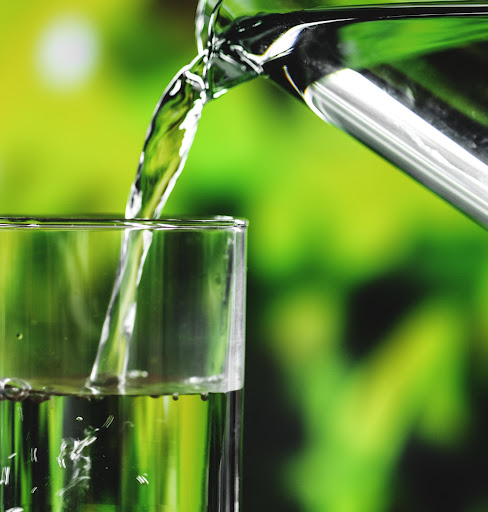Disclaimer:
This article is for information purposes only. It is not a substitute for medical advice or treatment. Seek medical care for your treatment.
Dehydration:
Dehydration happens when you lose more water than you take in through urine, tears, sweating and breathing. Humid weather, intense exercise, diarrhea, vomiting and illness can dehydrate you.
Dehydration can badly impact your energy and mental well-being leading to the symptoms like headache and dizziness.
It’s sad to say that kids and adults get dehydrated more easily because they don’t drink plenty of water. Without water your cells can’t function properly which is why human beings can’t survive without water. It is essential to keep your body hydrated to maintain good health. Mentioned below are 5 potential signs of dehydration which everyone should know:
- Cracked lips and dry skin:
If you are having dry skin, dry mouth and dry cracking lips, probably you are dehydrated. These are most typical signs of dehydration. It is significant to remember that dry skin or dry lips can be the symptoms of some other health conditions, especially when you are drinking plenty of water, so it is imperative to do the correct diagnosis. Your doctor may take your skin test to analyze your hydration status. This test is called skin turgor test in which he gently pinches the skin on lower arm or the abdomen in between two fingers and then liberating it after few seconds. The hydrated skin will swiftly return to its original position, whereas dehydrated skin will stay in a ‘canopy’ position and will take longer to jump back to its original position, also If you are dehydrated your skin reddens.
- Headaches:
Headaches are the most known symptom of dehydration; even mild dehydration can set off a headache. You may get recurring headaches your body is not getting sufficient fluids. It is hard to find that how dehydration leads to headaches. One notion that fluid erosion in the body leads to the stretching of blood channels in the brain, giving rise to headaches. Various researches reveal that there are numerous mechanisms behind ‘headaches linked to dehydration’, which is why some people are more prone to headaches linked to dehydration as compared to others. Studies emphasize to lift up your water game in order to minimize headache severity, duration and frequency in people having migraine. Small swigs of water or a full glass of water throughout the day can really relieve symptoms of dehydration and headache.
- Dark, strong smelling urine and reduced urination:
Colour of your urine is a practical way to discern dehydration. Due to lack of fluids in your body, your urine will be darker in colour and you won’t urinate very often. Dark coloured urine is the outcome of reserving more water in your body than releasing it into urine. As a result, the urine becomes denser with waste products from the body, such as sodium and urea. The intention is not to have completely translucent urine because the ideal urine colour is pale yellow. One should always remember that certain other factors can influence the colour of your urine, for instance, use of certain medicines and intake of vitamin B can turn urine bright yellow.
- Fever and muscle spasms:
Heart linked diseases can cause fever. You sweat when you’re dehydrated, but your skin feels cold. Fever enhances your chances for dehydration. Skin becomes perspiring and flushed. At this juncture it is imperative to visit your health care provider to check if further involvement is required for hydration. If you doubt that fever and chills are caused by COVID-19, firstly get yourself tested for COVID-19.
Muscle spasms can be a sign of dehydration. You might evidently experience the symptoms if you are exercising on a hot day. Muscle cramping is the result of great loss of significant nutrients from dehydration. It is obvious that electrolyte sports drink is more beneficial to hydrate rather than plain water during intense workout. One should always remember to stay hydrated whether you are exercising indoors or outdoors to avert muscle cramping.
- Fatigue:
You may feel more sapped if you are dehydrated because, dehydration hugely impacts our body and mental health, including our sleeping patterns. A study revealed that people with less sleep are linked with insufficient hydration as compared to the people who slept longer and were well hydrated. If you are dehydrated you will find it very tiring to exercise properly and regularly. A small study states that 14 male athletes showed that severe dehydration of 3.2% body mass leads to increased fatigue and negatively impacts your exercise routine.
Signs of dehydration in babies and kids:
A child or an infant do not show the similar signs of dehydration that adults do, making it impossible for parents and caretakers to discern dehydration. Kids are more prone to dehydration because of diarrhea, fever or vomiting. Infants or kids are dependent on parents or guardians for hydration. Mentioned below are the signs of mild to moderate dehydration in children:
- Less urination
- Being fatigued
- No or fewer tears when crying
- Dry tongue and lips
- Diarrhea
Signs of acute dehydration in kids are:
- Intense agitation
- Fatigue
- Sunken eyes
- Cold hands and feet
- Wrinkled or dry skin
- Less urination
- Low BP
- Rapid heart rate
- Perplexed
It is imperative to treat any type of dehydration in kids because it can be perilous to your child’s health.
Conclusion:
Dehydration is very common and can be caused by illness, use of various medicines, intense exercise or inadequate water intake. Make it a habit to drink adequate water or other fluids. 5 evident signs and symptoms are mentioned above. In case of acute dehydration immediately consult your doctor.




